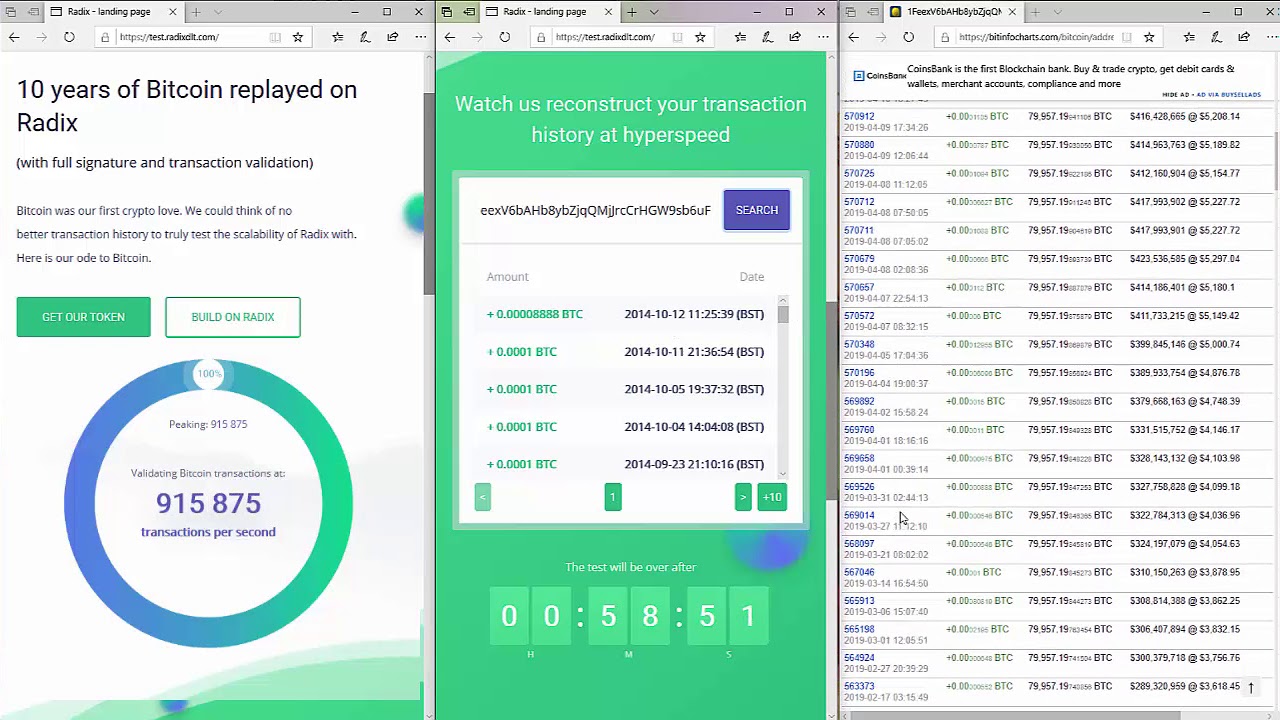why is radix better than its other competitors?
I am very interested in radix ecosystem, maybe you can answer it
You can start with the Collection of Radix infographics, you can find comparisons with some other Layer 1 technologies. ScaleCrypto.org is also a very useful site to compare various L1, it doesn’t have Radix yet though.
In my opinion, one of the great things about XRD is that it has more and more TPS than any other competitors.
Last year, in a live online test and closed event in London, the startup processed the entire 10-year transaction of BTC!
Its created to server 7 billion people with out ever slowing down or getting expensive
Its not built on blockchain technology which is limited in waht it can do as not created for mass adoption
transaction speed is what I’m most interested in, with quite a lot of tps compared to other competitors. but there are other things that I observe more,
Perhaps the best thing is that all tokens on the Radix network are L1, remember that in the past mainstream networks with smart contract solidity required us to manually input the type of token we had when we bought tokens or just re-imported the wallet.
With radix we can confirm the contents of the wallet just by opening it, and all kinds of tokens will appear without any hassle on other networks.
there is already a very good real advantage. however it may be necessary to determine what kind of odd token is showing up in the wallet.
Tokens being native to network and not part of smart contract is a very good thing.
I guess this is linked somewhere on this forum but I will share it here, explains a lot:
There are only three major reasons, really:
- Infinitely scalable (we hope, after Xi’an)
- Maintaining Atomic Composability despite scaling through sharding
- Scrypto as a coding language being easy for developers to make dApps with, which will in turn onboard a lot of people to Radix
Of course radix better than another DEFI, they are have SCRYPTO And Babylon
Same for me, Radix’s transaction speed is a strongpoint: being able to handle an universe of transactions per second will be important in the future when you want to run something like a social network on the blockchain. But the fact that you can group a number of transactions into one and instantly execute it is what makes Radix amazing to me.
Your question is pretty general, let me show you a few resources which I recommend you reading. If you have further, detailed questions, I think the community will happy to answer that.
Complete Radix guide, including why it is a unique among all projects: A Complete Guide to Radix and the XRD token. | blocmates
Useful learnings: (copied from Telegram)
![]() How Radix Engine is Designed to Scale dApps (How Radix Engine is Designed to Scale dApps | The Radix Blog | Radix DLT)
How Radix Engine is Designed to Scale dApps (How Radix Engine is Designed to Scale dApps | The Radix Blog | Radix DLT)
![]() Radix Engine v2: An Asset-Oriented Smart Contract Environment (Radix Engine v2: An Asset-Oriented Smart Contract Environment | The Radix Blog | Radix DLT)
Radix Engine v2: An Asset-Oriented Smart Contract Environment (Radix Engine v2: An Asset-Oriented Smart Contract Environment | The Radix Blog | Radix DLT)
![]() Scrypto: An Asset-Oriented Smart Contract Language (Scrypto: An Asset-Oriented Smart Contract Language | The Radix Blog | Radix DLT)
Scrypto: An Asset-Oriented Smart Contract Language (Scrypto: An Asset-Oriented Smart Contract Language | The Radix Blog | Radix DLT)
![]() How a game engine for DeFi could facilitate accelerated development (https://cointelegraph.com/news/how-a-game-engine-for-defi-could-facilitate-accelerated-development)
How a game engine for DeFi could facilitate accelerated development (https://cointelegraph.com/news/how-a-game-engine-for-defi-could-facilitate-accelerated-development)
Radix will be able to scale linearly (What is linear scalability? | The Radix Knowledge Base) thanks to how it was built from the ground. It basically means unlimited scalability, so pretty fast we can say ![]()
Radix mainnet has already launched on the 28th of July 2021. Radix has a clear roadmap ahead, which you can find here: What is the Radix roadmap? | The Radix Knowledge Base
